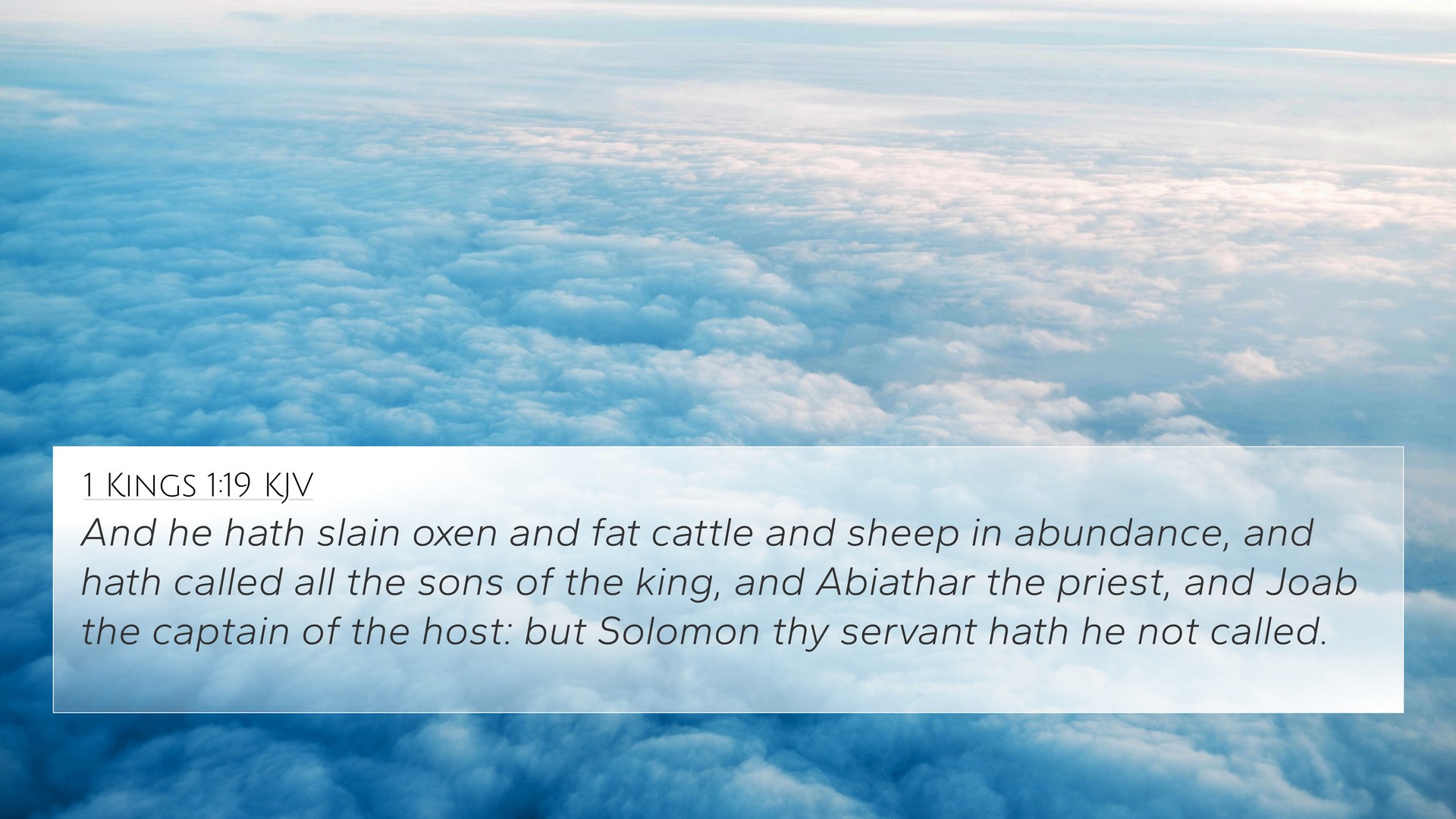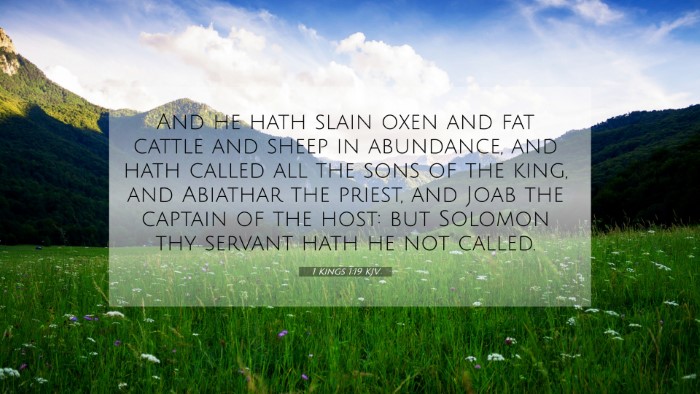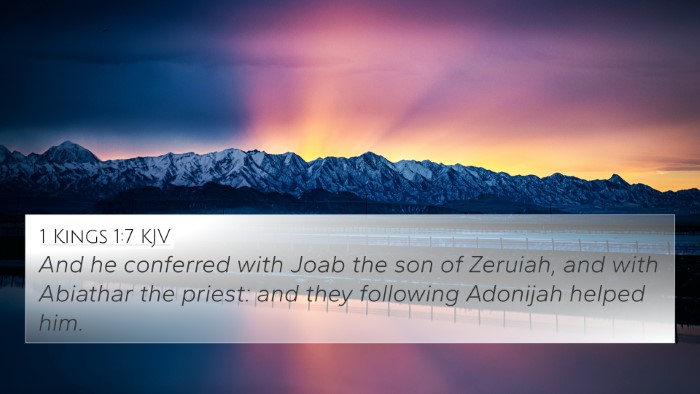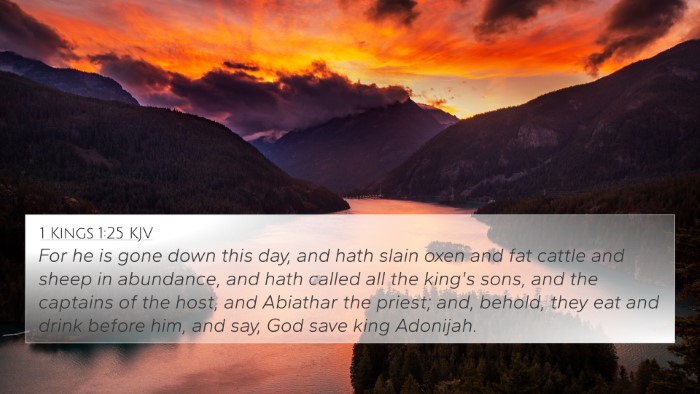Understanding 1 Kings 1:19
1 Kings 1:19: "And he has slain oxen and fat cattle and sheep in abundance, and has called all the king's sons, and Abiathar the priest, and Joab the captain of the host; but Solomon your servant has he not called."
This verse recounts a pivotal moment in the transition of power during King David's reign, where Adonijah, one of David’s sons, attempts to secure his claim to the throne by hosting a feast and inviting key individuals while deliberately excluding Solomon, David's chosen successor.
Summary of Insights from Public Domain Commentaries
According to Matthew Henry, this verse illustrates the ambition of Adonijah and his attempts to rally support through feasting and invitation, which were customary means to announce a claim to kingship. Henry notes the political maneuvering inherent in this act, highlighting the contrast between Adonijah's approach and Solomon's more humble beginnings.
Albert Barnes emphasizes the significance of the gatherings during that time. The feast represents Adonijah’s assertiveness in seizing the kingdom without divine sanction, which he contrasts with the divine choice of Solomon, stressing that God’s will prevails over human ambition.
Adam Clarke remarks on the implications of Solomon being ignored at the feast. Clarke asserts that this silence from Adonijah exemplifies the overarching chaos within David’s house, suggesting deeper familial strife and division, akin to the struggles that would characterize Israel's history.
Bible Verse Cross-References
- 2 Samuel 15:11: Highlights Absalom's rebellion and how individuals can stir divisions.
- 1 Kings 2:15: Adonijah's perception of kingship reveals the heart of self-promotion versus divine appointment.
- 1 Chronicles 22:9: Indicates God’s choice of Solomon as the successor, contrasting with Adonijah’s attempt.
- 1 Kings 1:5: Adonijah’s self-appointment sets up the conflict central to this chapter.
- 2 Samuel 7:12-13: God’s covenant regarding David's lineage establishes Solomon's eventual role.
- Matthew 12:25: Jesus teaches about the kingdom and divided houses, paralleling the strife in David's family.
- Psalm 2:1-6: Reflects on the futility of rebellion against God’s anointed ruler, applicable to Solomon's ascension.
Comparative Analysis
The thematic connections in 1 Kings 1:19 to earlier narratives underline humanity's continuous attempt to seize power. The exclusion of Solomon from Adonijah’s feast mirrors other scripts where God’s chosen leaders face adversity from their kin, invoking a pattern that resonates throughout Scripture. Connections between verses, such as those found in 2 Samuel and Psalms, provide a deeper analysis of God’s ultimate authority over human affairs.
Tools for Bible Cross-Referencing
Utilizing a Bible concordance or a Bible cross-reference guide can help in navigating these connections. For those studying comparative Bible verses, understanding the interrelation between the Old and New Testament is key. This practice cultivates a richer understanding of scriptural themes.
In examining the cross-reference Bible study, you can utilize various Bible reference resources that illuminate links between passages. For example, discerning Bible verses related to leadership and divine sovereignty enriches your scriptural engagement, revealing the continuum of God's plan through successive generations.
Conclusion
1 Kings 1:19 serves as a critical analysis of power dynamics, familial loyalty, and the quest for authority in God's overarching narrative. Through scriptural cross-referencing, individuals can discern deeper meanings and relational themes among Bible verses, fostering a comprehensive grasp of the Biblical text and its teachings.




